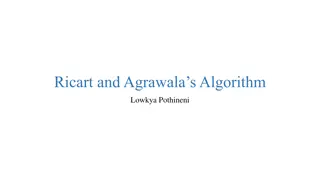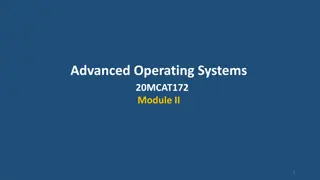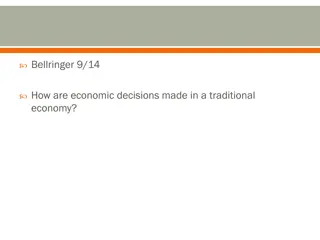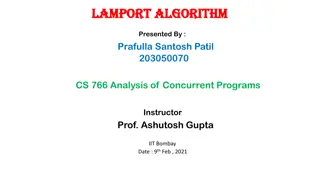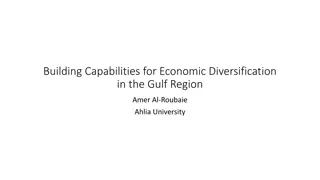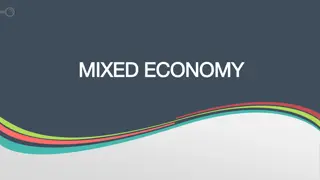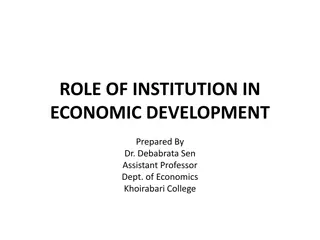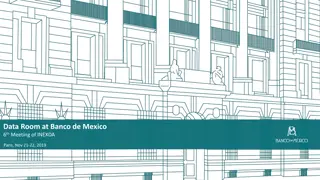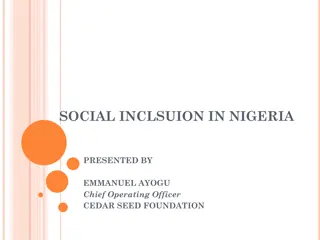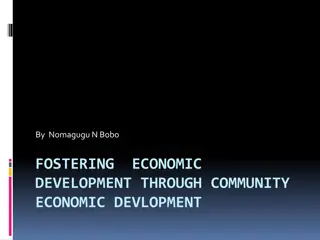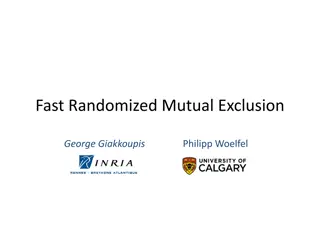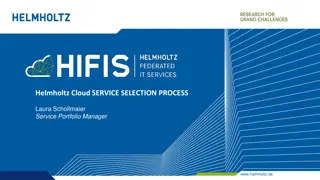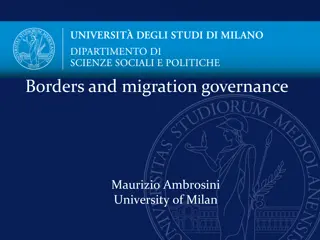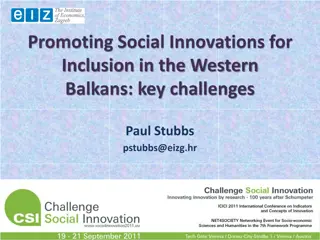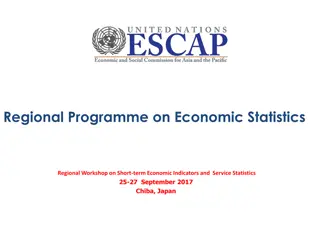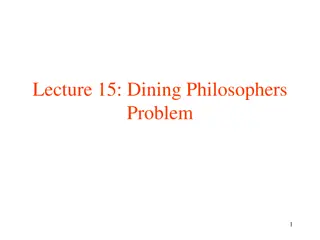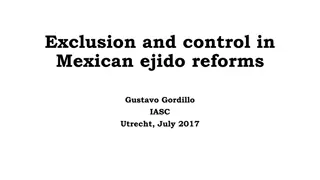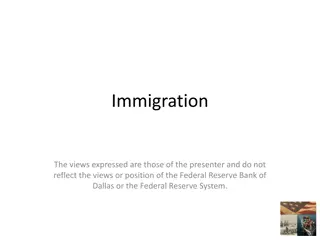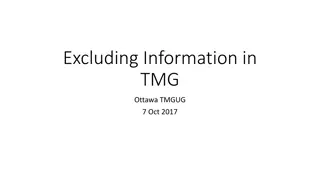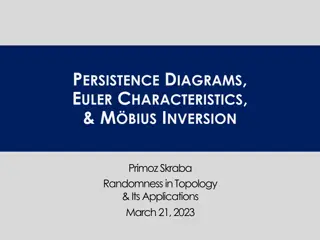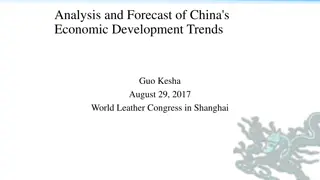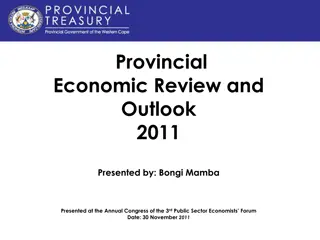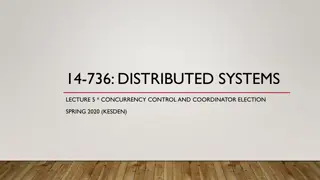Rashford's Exclusion Raises Questions as Southgate Navigates Delicate Balance Euro 2024
Rashford's Exclusion Raises Questions as Southgate Navigates Delicate Balance for Euro 2024\n\nhttps:\/\/blog.worldwideticketsandhospitality.com\/2024\/02\/01\/rashfords-exclusion-raises-questions-as-southgate-navigates-delicate-balance-for-euro-2024\/\n\nUEFA Euro 2024 fans from all over the world
6 views • 5 slides
2023/24 Annual Performance Plan Presentation for Small Business Development Department
The presentation outlines the 2023/24 Annual Performance Plan of the Department of Small Business Development, covering situational analysis, global economic outlook, performance priorities, game-changers program, alignment with economic recovery plans, institutional program performance, key risks a
27 views • 59 slides
U.S. Virgin Islands Economic Development Authority Webinar: Small Business COVID-19 Resources
The U.S. Virgin Islands Economic Development Authority held a webinar focused on providing resources and assistance for small businesses impacted by COVID-19. The agenda covered the overall economic impact, reliable resources, SBA Economic Injury Disaster Loan (EIDL), and the tourism industry. Speak
0 views • 13 slides
Ricart and Agrawala's Algorithm for Mutual Exclusion
The Ricart-Agrawala Algorithm is a distributed system algorithm for achieving mutual exclusion without the need for release messages, developed by Glenn Ricart and Ashok Agrawala. The algorithm involves processes sending timestamped requests to enter a critical section, with careful handling of repl
1 views • 16 slides
Understanding Distributed Mutual Exclusion in Operating Systems
In distributed systems, the problem of mutual exclusion arises when multiple sites/processes need to access shared resources concurrently. Unlike in single-computer systems, distributed systems lack shared memory, leading to the need for communication-based approaches rather than shared variables li
0 views • 49 slides
Economic Systems in the United Kingdom, Germany, and Russia
Economic decisions in traditional economies are based on customs and beliefs. The United Kingdom has a mixed market economy with a focus on service industries, while Germany's economy is export-based. Russia's economy leans towards a command system. By comparing these economic systems, one can see h
0 views • 11 slides
Understanding Key Concepts in Economic Geography
Economic Geography is a sub-discipline that utilizes a geographical approach to analyze the spatial distribution of economic activities at various scales. It focuses on the location of economic activities and their relationship with the environment, encompassing primary, secondary, and tertiary sect
1 views • 20 slides
Understanding Lamport Algorithm for Mutual Exclusion
Lamport Algorithm, presented by Prafulla Santosh Patil, is a permission-based algorithm utilizing timestamps to order critical section requests and resolve conflicts. It employs three types of messages: REQUEST, REPLY, and RELEASE, where each site manages a queue to store requests. By ensuring commu
0 views • 15 slides
Enhancing Economic Diversification in the Gulf Region
Economic diversification in the Gulf region is crucial for sustainable growth and development. Productive capacities, defined as the resources and capabilities enabling countries to produce goods and services, play a key role. Economic diversification involves shifting towards a varied structure of
0 views • 13 slides
Understanding Mixed Economy: A Balanced Economic Model
Mixed economy combines elements of socialism and capitalism, allowing both public and private sectors to coexist. Government intervention aims to achieve a balance between individual initiatives and societal goals, promoting economic development while addressing inequalities. Features include econom
0 views • 15 slides
Role of Institutions in Economic Development: A Comprehensive Analysis
Understanding the significance of institutions in economic development is crucial, as they play a pivotal role in shaping societal, political, and economic relations. Institutions, defined as established customs or practices, act as the rules of the game that structure human interactions. Their qual
0 views • 13 slides
Economic Perspectives on Malaria Control and Elimination
Analyzing malaria control and elimination from an economic standpoint is crucial for understanding the long-term health outcomes, cost savings, operational strategies, funding gaps, and wider economic consequences of the disease. By examining the correlation between malaria and poverty, exploring fu
4 views • 21 slides
Understanding Research Methods and Participants
Explore the differences between method and methodology, types of research methods and methodologies, characteristics of participants in studies, and inclusion/exclusion criteria. The content elaborates on the importance of rationale, justification, and techniques/tools used in research, along with e
0 views • 17 slides
Understanding Required Background Checks for Providers in 2019
Explore the essential background check requirements for providers in 2019, covering topics like Staff Exclusion List (SEL) checks, Criminal Background Checks (CBC), authorized person responsibilities, and temporary approvals. The checks are crucial for applicants with substantial contact with servic
1 views • 64 slides
Understanding Economic Systems and Their Impacts
Explore traditional, command, and market economies, and how they address economic questions. Understand the concept of mixed economies and their placement on a continuum between market and command systems. Compare economic systems in Israel, Saudi Arabia, and Turkey. Delve into essential economic vo
0 views • 17 slides
Understanding Qualified Opportunity Zones Tax Benefits
Qualified Opportunity Zones (Opportunity Zones) offer tax incentives to investors who reinvest capital gains in designated low-income communities. By utilizing Qualified Opportunity Funds (QOF), investors can benefit from capital gains deferral, partial gain exclusion, and full gain exclusion on app
0 views • 12 slides
Data Room at Banco de Mexico: Enhancing Data Sharing for Economic Research
Banco de Mexico has been gathering granular data on financial transactions since the mid-1990s to monitor compliance, risks, and economic interactions. The creation of a Data Room allows for efficient and secure data sharing, contributing to economic research and analysis. The Economic Microdata Lab
3 views • 12 slides
Enhancing Social Inclusion for a Diverse Society: A Focus on Nigeria
The concept of social inclusion as a key goal of development was emphasized at the World Summit for Social Development in 1995. It aims to ensure equal opportunities for all individuals to actively participate in various aspects of society, combatting poverty and exclusion. Social exclusion, on the
0 views • 19 slides
Fostering Economic Development Through Community Economic Development
Community Economic Development (CED) involves local actions to create economic opportunities improving social conditions, especially for the disadvantaged. It recognizes the interdependence of economic, environmental, and social challenges, emphasizing solutions rooted in local knowledge. The ultima
1 views • 30 slides
Overview of Mutual Exclusion and Memory Models in Distributed Systems
Discussion on fast, randomized mutual exclusion techniques by George Giakkoupis and Philipp Woelfel. Exploring asynchronous shared memory systems with atomic operations. Understanding mutual exclusion principles as outlined by Dijkstra in 1965 and measuring time efficiency in critical sections. Delv
2 views • 23 slides
Principles of Inclusion-Exclusion in Combinatorics
Explore the principles of inclusion-exclusion in combinatorics, focusing on scenarios involving sets and intersections. Learn how to calculate the number of strings that contain specific elements by applying these principles effectively, with detailed examples and explanations.
0 views • 49 slides
HelmholtzCloud Service Selection Process Overview
The Helmholtz Cloud Service Selection Process is detailed through service surveys, iterations, criteria types, and exclusion processes. Service providers deliver data, weighting and selection criteria are applied, and candidate services are listed based on surveys and integrations. Criteria categori
0 views • 41 slides
Local Policies of Exclusion: Impact on Immigration Governance
Local policies of exclusion in Italy are examined in relation to asylum seekers and migrants, showcasing the tensions between local communities and central authorities. These policies aim to prioritize native citizens and defend urban spaces from perceived threats, leading to opposition, fear, and p
0 views • 17 slides
Challenges and Solutions for Social Inclusion in the Western Balkans
This presentation discusses key challenges in promoting social innovations for inclusion in the Western Balkans. It explores theories of social exclusion, the rise of a Moral Underclass Discourse, and economic indicators such as GDP growth and absolute poverty headcount. The content emphasizes the n
0 views • 18 slides
The Struggles of East Asian Immigration in the United States, 1875-1946
The timeline of East Asian immigration to the United States between 1875 and 1946 reflects a history marred by exclusionary laws, such as the Chinese Exclusion Act and the Immigration Acts of the early 20th century. Angel Island served as a gateway, detaining and processing thousands of Chinese and
0 views • 9 slides
Enhancing Economic Statistics in Asia-Pacific Region
The Regional Programme on Economic Statistics aims to improve economic statistics in the Asia-Pacific region by enhancing capacity and coordination among National Statistical Offices (NSOs) and other stakeholders. The programme focuses on implementing the Core Set of Economic Statistics to facilitat
0 views • 11 slides
Addressing Secure Detention and Juvenile Justice: ICJ Rules and OJJDP Exclusion
This training session focuses on how the ICJ Rules address secure detention for juveniles and the enforcement of the OJJDP exclusion within state judiciary. Explore topics such as serving juveniles while protecting communities, the JJDPA, deinstitutionalization of status offenders, and voluntary/non
0 views • 26 slides
Influence of Fermionic Exchange Symmetry Beyond Pauli's Exclusion Principle
Christian Schilling from the University of Oxford delves into quantifying the impact of fermionic exchange symmetry, going beyond Pauli's exclusion principle. The study explores generalized Pauli constraints, concrete systems analysis, and the relevance of (quasi) pinning. Collaborating with various
0 views • 27 slides
Dining Philosophers Problem and Mutual Exclusion Solutions Review
This lecture discusses the Dining Philosophers Problem, a classic synchronization issue in computer science. It covers various solutions for achieving mutual exclusion, including software-based solutions like Peterson's algorithm and hardware-based solutions like Test-and-Set (TSL/XCHG). Additionall
0 views • 17 slides
Overview of Economic Policy: From Mercantilism to Present-Day Practices
Explore the concept of economic policy and its importance in achieving economic objectives. Delve into the historical debate on state intervention in the economy and major schools of economic theory like Mercantilism. Understand the emergence of economic policies through economic, political, scienti
0 views • 105 slides
Impact of Impact Funding on Insurance Contracts Construction
Exploring the impact of impact funding versus AIG on the construction of insurance contracts, specifically focusing on the insuring clause, exclusion clauses, and the Court of Appeal decision regarding solicitors' professional indemnity insurance. The exclusion clause aims to distinguish personal ob
0 views • 24 slides
Mexican Ejido Reforms: Exclusion and Control Dynamics
Explore the intricate dynamics of exclusion and control within Mexican ejido reforms, revealing historical backgrounds, the essence of ejido rural communities, the dual facets of ejidos, pre-1991 rules, state interventions, and the comprehensive reform package leading to the end of land redistributi
0 views • 22 slides
Analyzing Links Between Social Exclusion and Health in Scotland
Analyzing the relationship between social exclusion and health in Scotland, this task requires drawing conclusions based on evidence from multiple sources. Examples provided demonstrate how social exclusion impacts health outcomes, with varying levels of evaluative language and synthesis between sou
0 views • 17 slides
History of Immigration Policies in the United States
The history of immigration policies in the United States reflects a complex evolution shaped by economic needs, social attitudes, and political decisions. From the early days of free immigration to the establishment of exclusionary laws targeting specific groups, such as the Chinese Exclusion Act an
0 views • 21 slides
Managing Display of Information in TMG
Learn how to control the display of information in TMG software by using exclusion markers. Exclusion markers help you suppress certain fields in order to make space for other important information to be viewed, control export to GEDCOM files, and manage printing preferences. These markers can be ap
0 views • 20 slides
Principles of Operating Systems Synchronization Mechanisms
Operating systems utilize high-level synchronization mechanisms such as semaphores, condition variables, and monitors to provide synchronization beyond mutual exclusion. Semaphores are abstract data types that offer mutual exclusion to critical sections, while condition variables model uncounted eve
0 views • 21 slides
Randomness in Topology: Persistence Diagrams, Euler Characteristics, and Möbius Inversion
Exploring the concept of randomness in topology, this work delves into the fascinating realms of persistence diagrams, Euler characteristics, and Möbius inversion. Jointly presented with Amit Patel, the study uncovers the vast generalization of Möbius inversion as a principle of inclusion-exclusio
0 views • 57 slides
Analysis and Forecast of China's Economic Development Trends - Guo Kesha Presentation
The presentation by Guo Kesha at the World Leather Congress in Shanghai delves into the analysis and forecast of China's economic development trends. It discusses whether a new cycle has opened for the Chinese economy, the potential for an L-type growth platform, and initial research on economic tre
0 views • 22 slides
Economic Review and Outlook 2011: Global Trends and Regional Impacts
The Provincial Economic Review and Outlook for 2011 highlighted the global economic performance and outlook, focusing on factors like GDP growth, employment trends, and socio-economic conditions in the Western Cape region. It discussed the recovery in global economic growth post-2009, with the IMF p
0 views • 29 slides
Concurrency Control and Coordinator Election in Distributed Systems
This content delves into the key concepts of concurrency control and coordinator election in distributed systems. It covers classical concurrency control mechanisms like Semaphores, Mutexes, and Monitors, and explores the challenges and goals of distributed mutual exclusion. Various approaches such
0 views • 48 slides



